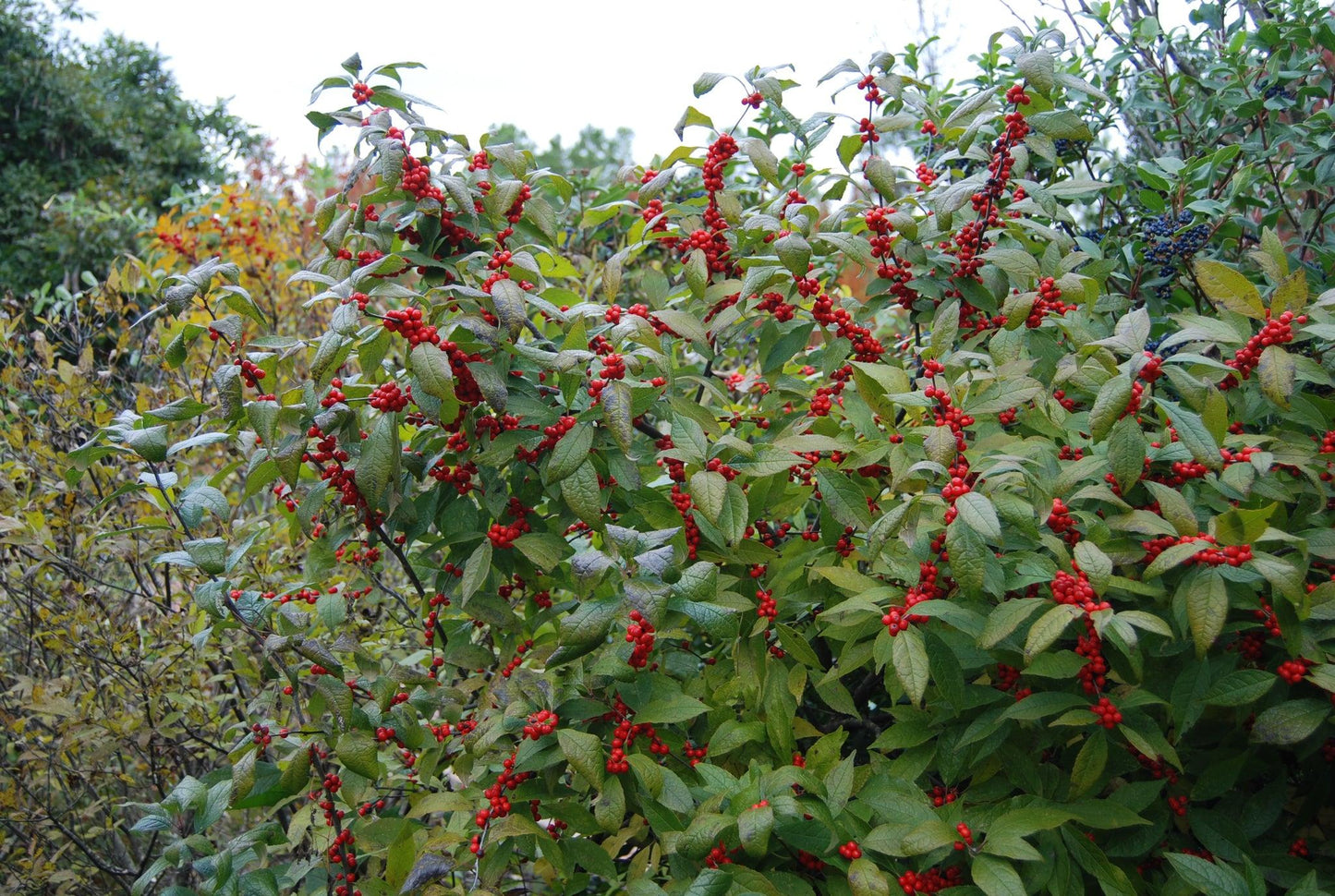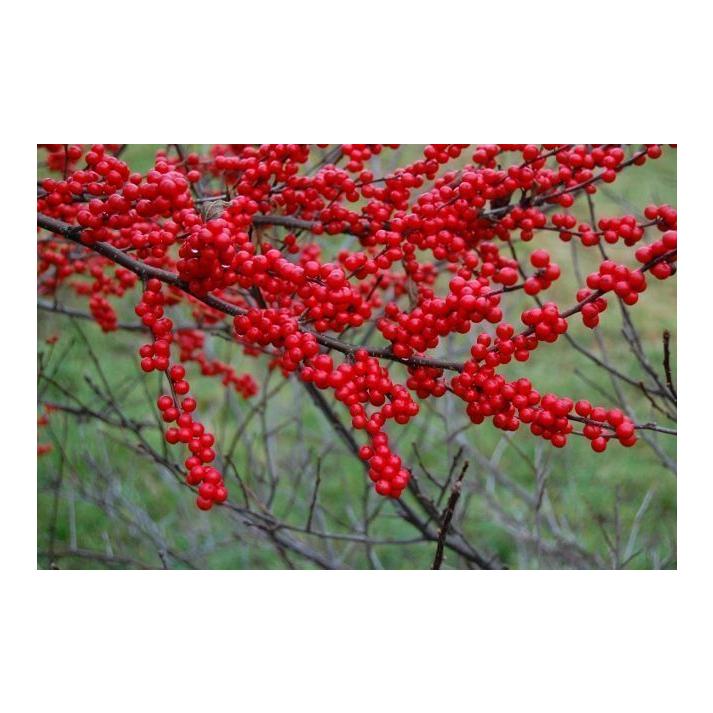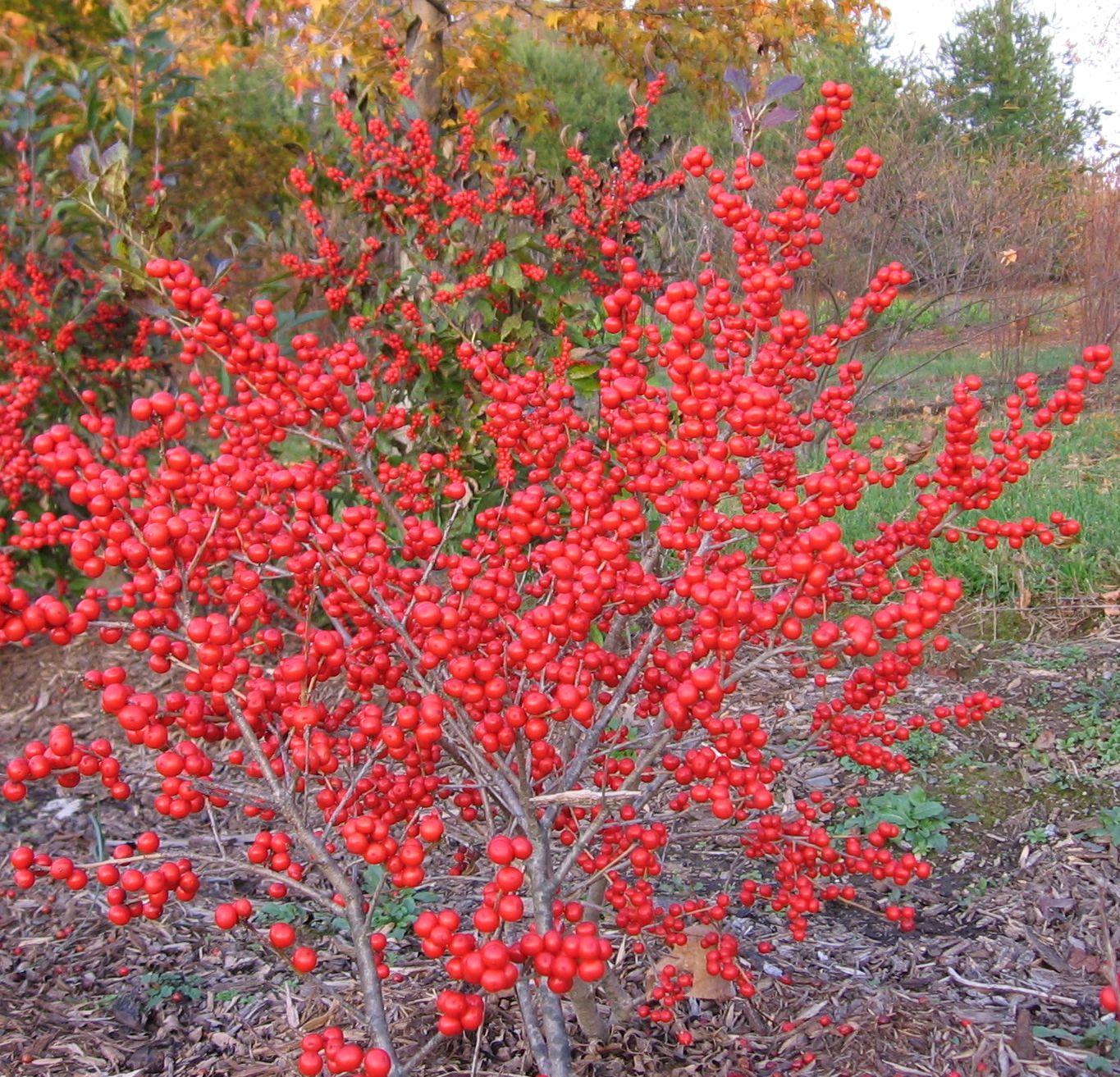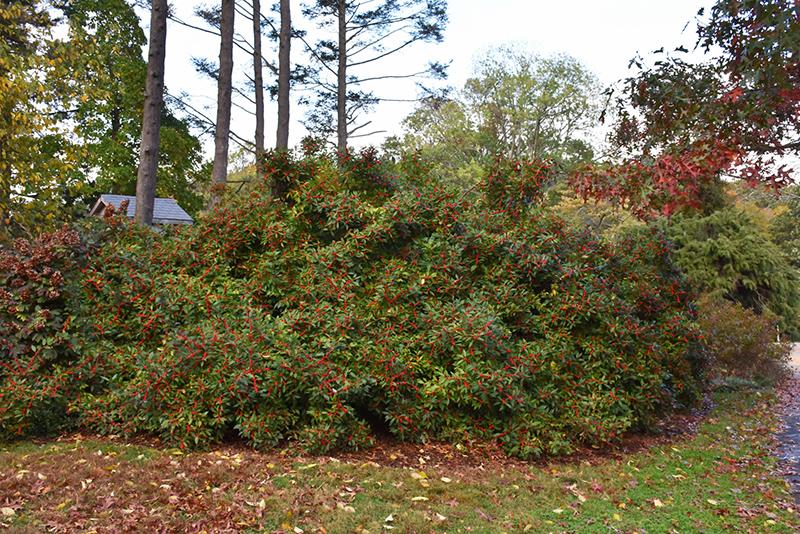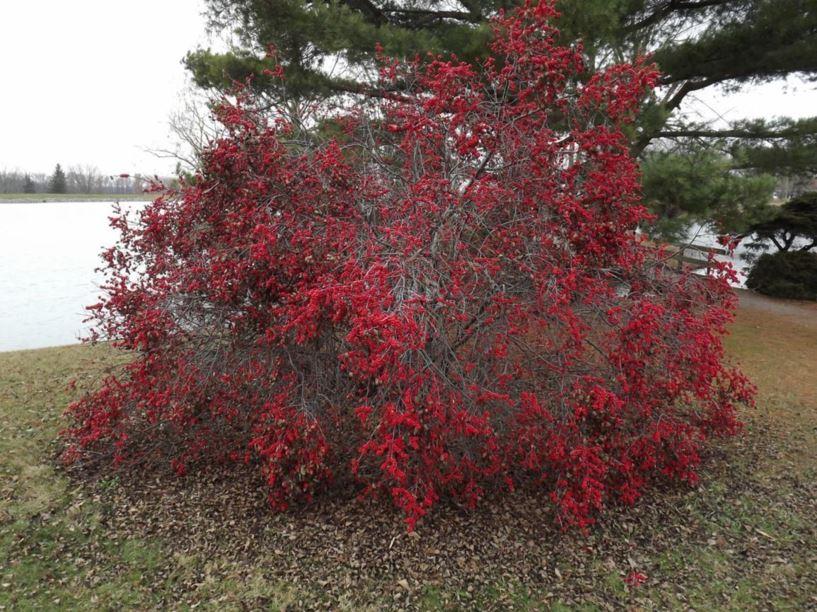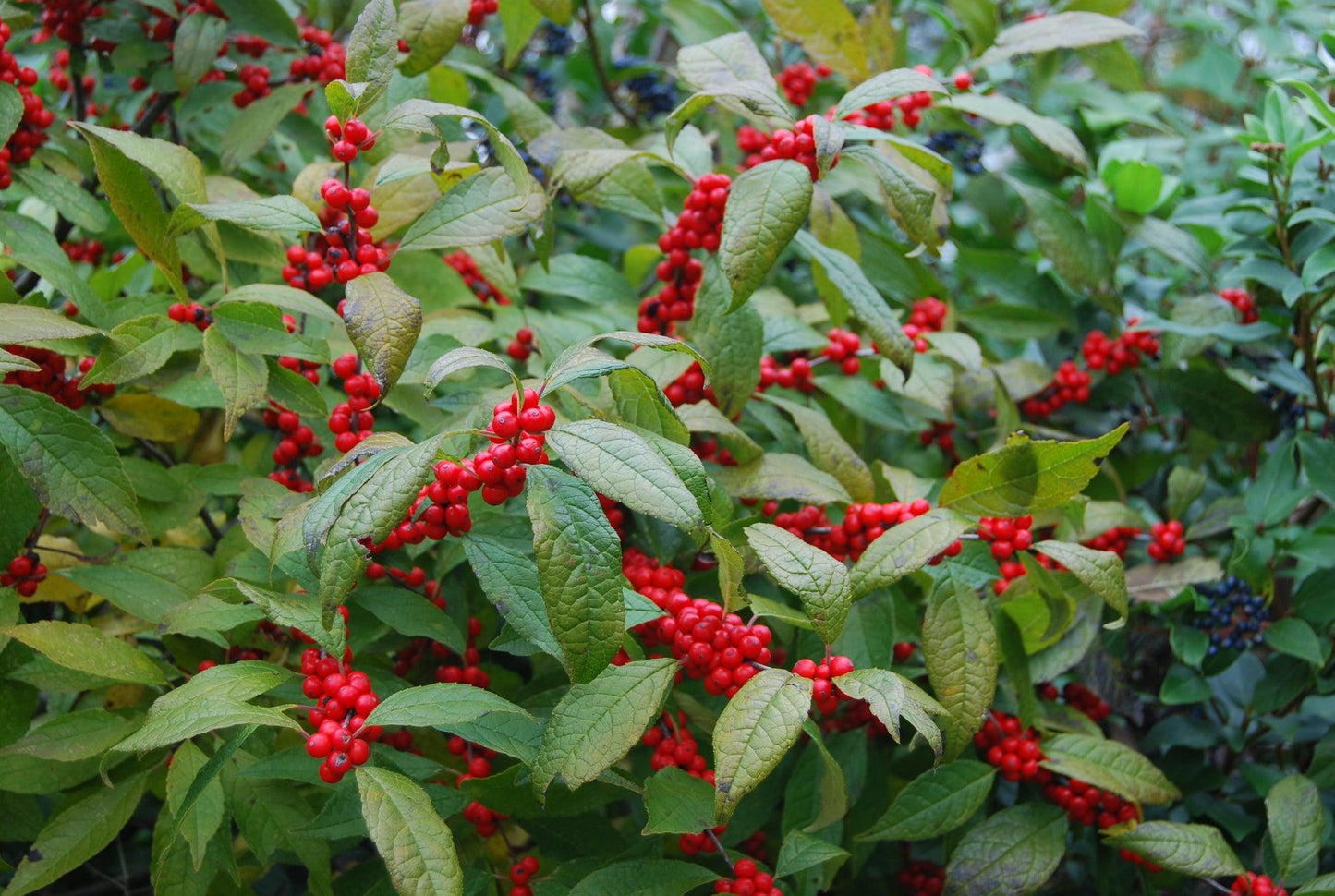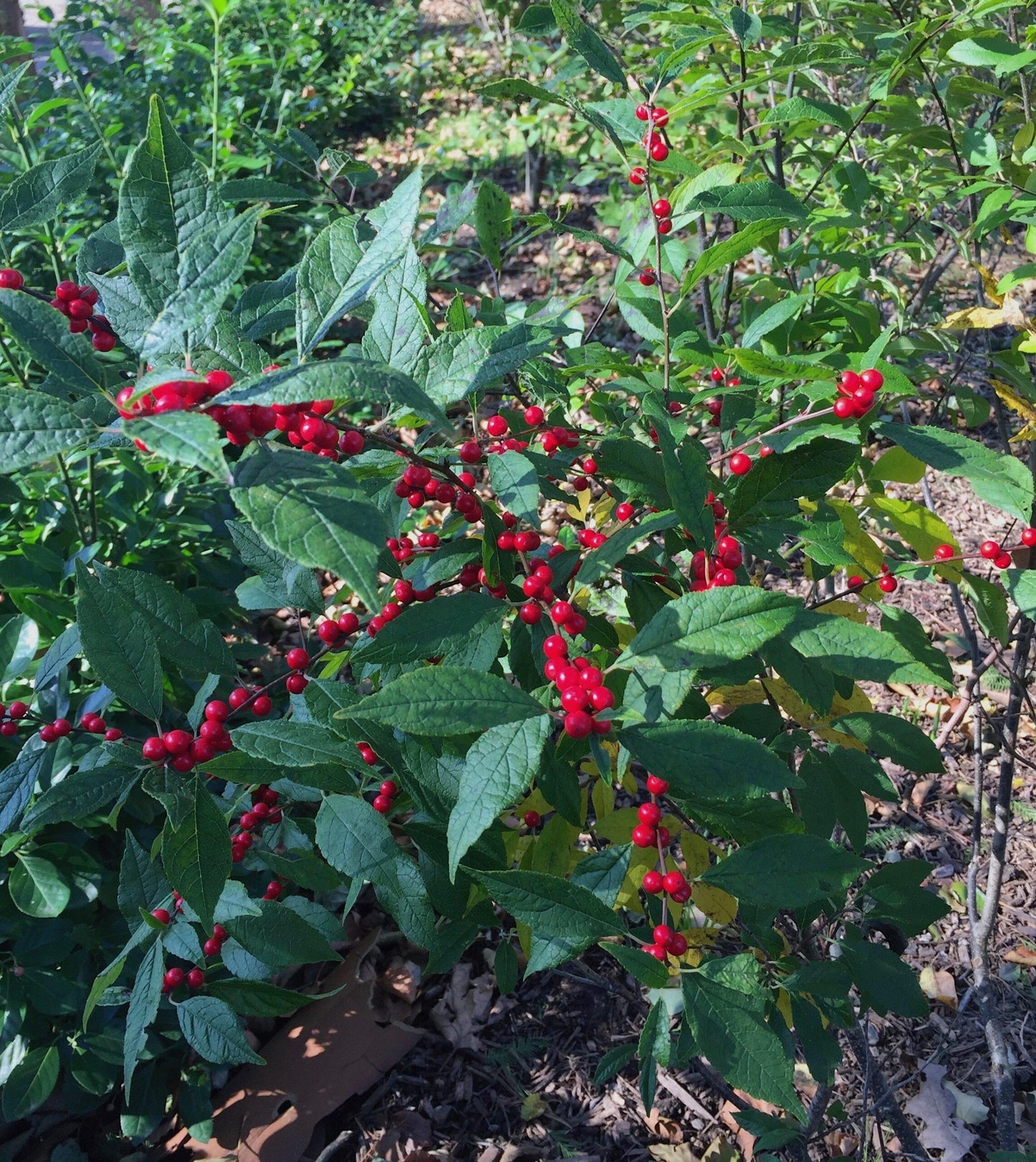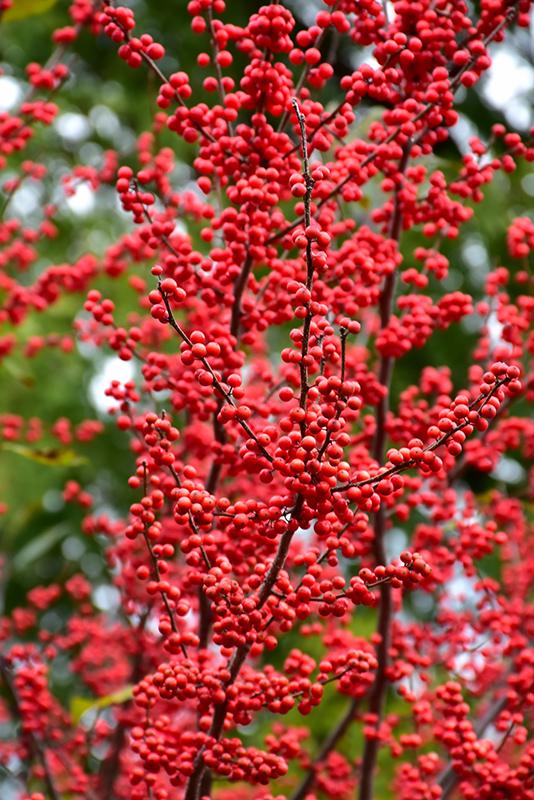1
/
of
8
Winterberry-Winter Red-Attractive to Birds 10 Gallon
Winterberry-Winter Red-Attractive to Birds 10 Gallon
Regular price
$372.00 USD
Regular price
$483.60 USD
Sale price
$372.00 USD
Unit price
/
per
Shipping calculated at checkout.
SKU:nsd4391-redcrocus
Couldn't load pickup availability
Ilex verticillata 'Winter Red'
Description
Ilex verticillata 'Winter Red', commonly known as Winterberry, is a deciduous holly native to North America. It is renowned for its vibrant red berries that persist throughout the winter, providing a stunning contrast against the barren landscape. This plant is dioecious, meaning both male and female plants are needed for fruit production.
Suggested Uses
Winter Red Winterberry is ideal for use in naturalized areas, as a hedge, or in mixed borders. Its bright berries make it a popular choice for winter interest in gardens and landscapes. It also serves as an excellent food source for birds during the colder months.
Plant Details
-
 Botanical Name: Ilex verticillata 'Winter Red'
Botanical Name: Ilex verticillata 'Winter Red' -
 Common Name: 'Winter Red' Winterberry
Common Name: 'Winter Red' Winterberry -
 Size & Growth: 6-8 feet tall and wide
Size & Growth: 6-8 feet tall and wide -
 Hardiness Zones: 3-9
Hardiness Zones: 3-9 -
 Foliage Type: Deciduous
Foliage Type: Deciduous -
 Bloom Time: Late spring to early summer
Bloom Time: Late spring to early summer -
 Growth Rate: Moderate
Growth Rate: Moderate -
 Light Requirements: Full sun to partial shade
Light Requirements: Full sun to partial shade -
 Attracts Pollinators: Yes, especially birds
Attracts Pollinators: Yes, especially birds -
 Indoor Friendly: No
Indoor Friendly: No -
 Container Friendly: No
Container Friendly: No -
 Deer Resistant: Yes
Deer Resistant: Yes -
 Pet Warning: Berries can be toxic if ingested
Pet Warning: Berries can be toxic if ingested -
 Fragrant: No
Fragrant: No -
 Cut Flower: Yes, branches with berries are decorative
Cut Flower: Yes, branches with berries are decorative -
 Grows Well With: Other hollies, ornamental grasses, and evergreens
Grows Well With: Other hollies, ornamental grasses, and evergreens
Care Tips
-
 Planting Instructions: Plant in early spring or fall for best results
Planting Instructions: Plant in early spring or fall for best results -
 Soil Moisture: Prefers moist, well-drained soil
Soil Moisture: Prefers moist, well-drained soil -
 Soil Type: Tolerates a range of soil types, including clay and sandy soils
Soil Type: Tolerates a range of soil types, including clay and sandy soils -
 Humidity: Average humidity is sufficient
Humidity: Average humidity is sufficient -
 Pruning Instructions: Prune in late winter or early spring to maintain shape
Pruning Instructions: Prune in late winter or early spring to maintain shape -
 Winter Care: Mulch to protect roots in colder zones
Winter Care: Mulch to protect roots in colder zones -
 Planting Depth: Plant at the same depth as the nursery container
Planting Depth: Plant at the same depth as the nursery container -
 Fertilization: Fertilize in early spring with a balanced fertilizer
Fertilization: Fertilize in early spring with a balanced fertilizer -
 Special Care: Ensure male pollinator is nearby for berry production
Special Care: Ensure male pollinator is nearby for berry production
Share
